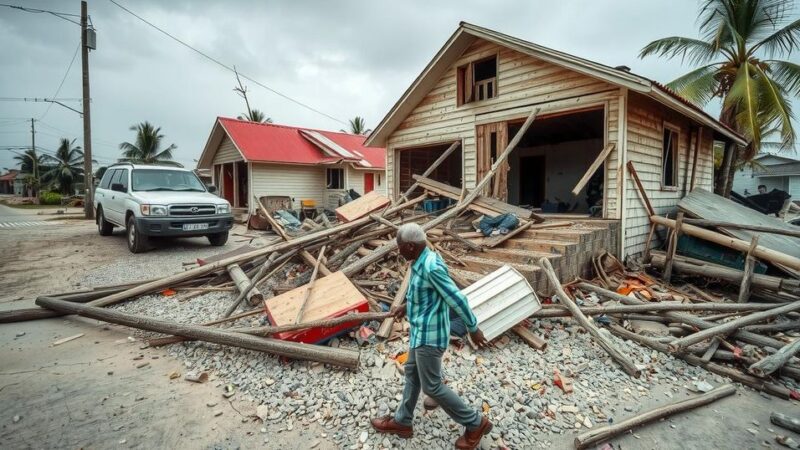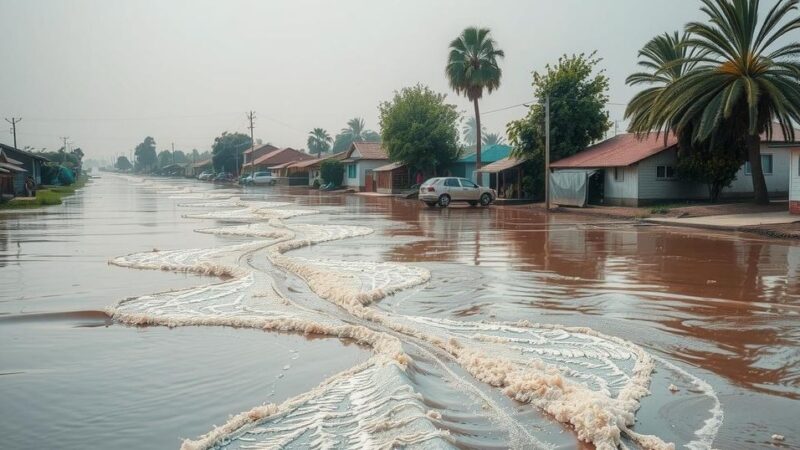Climate change has significantly intensified Cyclone Chido, as revealed by a study from Imperial College London, indicating a 40% increased likelihood of cyclones of this strength in today’s climate. Chido, classified as a Category 4 storm, is the most devastating cyclone to hit Mayotte in nearly a century, with a still-unknown looming death toll due to the extensive damage it caused particularly among low-income populations.
A recent preliminary study conducted by scientists at Imperial College London has highlighted the profound impact of climate change on Cyclone Chido, which recently struck the Indian Ocean archipelago of Mayotte. Researchers indicate that the intensity of such cyclones has escalated owing to global warming, estimating that cyclones of Chido’s caliber are now 40 percent more likely in the present climate compared to pre-industrial times. With the cyclone classified as a Category 4 storm, it has caused significant damage, particularly impacting low-income populations within Mayotte who often reside in makeshift housing.
In their analysis, the scientists employed a sophisticated computer simulation model to simulate numerous tropical cyclones and assess the effects of recent warming on storm intensity. They discovered that wind speeds near Chido’s landfall area have increased by approximately three miles per second as a direct consequence of climate change, effectively elevating the cyclone’s classification.
Despite the severe impact of Cyclone Chido, France’s weather service remains cautious in attributing the storm’s intensity directly to human-induced climate change, yet acknowledges that increased ocean temperatures are contributing to the violent nature of storms. Furthermore, the region is now experiencing a climate approximately 1.3 degrees Celsius warmer than in the pre-industrial era, contributing to more frequent and severe weather phenomena as warmer atmospheres hold increased amounts of water vapor.
In light of these assessments, the complete extent of damage caused by Cyclone Chido is still being evaluated, with officials expressing fears that the death toll may climb significantly as the situation unfolds. The trajectory of the cyclone over the islands ultimately dictated its catastrophic impact on the community.
This article examines the connection between climate change and the intensified strength of tropical cyclones, particularly Cyclone Chido which severely affected Mayotte. A significant point to note is the increasing frequency and severity of such weather events attributed to global warming. The research from Imperial College London utilized advanced simulation techniques to analyze storm patterns in relation to climatic changes resulting from human activity, offering insights into the escalating dangers posed by tropical storms in warmer climates. The findings indicate a notable increase in the likelihood and intensity of cyclones, raising critical concerns regarding public safety and infrastructure resilience in vulnerable regions.
In summary, the findings from Imperial College London suggest a clear link between climate change and increased cyclone intensity, as exemplified by Cyclone Chido’s devastating impact on Mayotte. The research underscores the urgency of addressing global warming to mitigate the risks posed by future severe weather events. Without comprehensive action on climate change, vulnerable regions like Mayotte may continue to face catastrophic outcomes from increasingly potent tropical storms.
Original Source: www.fox28spokane.com







